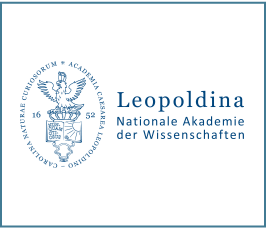Beyond von-Neumann Computing: Computing meets Nanophysics
Symposium
- Start: Sep 6, 2017 06:00 PM (Local Time Germany)
- End: Sep 8, 2017 04:00 PM
- Location: Nationale Akademie der Wissenschaften Leopoldina, Jägerberg 1 (ehemals Moritzburgring 10), 06108 Halle (Saale)
- Host: Max-Planck-Institut für Mikrostrukturphysik

Topic
Today's data processing is realized almost exclusively by computers, which are designed following the von-Neumann principle. Data and instructions for the processing unit pass the same data bus, leading to the so-called von Neumann bottleneck, which innately limits the performance of these computers. Radically new approaches are essential for creating next generation information processing technology. The symposium "Beyond von Neumann Computing" addresses key challenges and aims at identifying novel concepts towards the realization of neuromorphic computing. Thus, limitations due to inherent computer design issues may be overcome, and also a drastically improved energy efficiency may result. World leading experts from complementary disciplines ranging from materials science, physics, engineering, computation, neuroscience to biology will present and discuss their visions in the symposium.
Invited speakers
Rodney Douglas | University Zurich
von Neumann's other architecture
Julie Grollier | CNRS, Palaiseau
Learning pattern classification with coupled spintronic nano-oscillators
Moritz Helmstaedter | MPI Frankfurt
Karten des Denkens: Die Vermessung neuronaler Netzwerke
Herbert Jäger | Jacobs University, Bremen
What is "computing"?
Bert Kappen | Raboud University Nijmegen
Neurocomputing principles
Thomas Lengauer | MPI Saarbrücken
Computing for biology – biology for computing
Klaus-Robert Müller | TU Berlin
Machine learning and AI for the sciences – towards understanding
Joyce Poon | University Toronto
Integrated photonics for neuromorphic computing
David van Essen | Washington University, St. Louis
Parcellation of human cerebral cortex
Theo Rasing | Radboud University Nijmegen
Bits and brains
Michael Roukes | Caltech, Passadena
Can we reverse-engineer the brain?
Stanley Williams | HP, Palo Alto
Removing the golden handcuffs
Fred Wolf | MPI Göttingen
Building better brains – key innovations in the evolution of a fluid computing machine